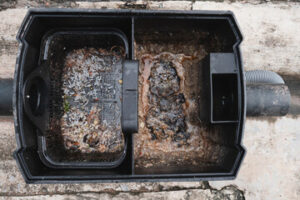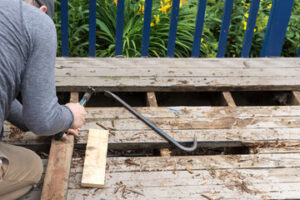Dogs are beloved family members, but even the most well-trained pets can bite in response to animal instincts or feelings. When they do, victims are often left with substantial medical bills and financial losses.
Atlanta Dog Bite Lawyer can help prove the owner had prior knowledge of a dangerous or vicious propensity. However, you may be able to recover compensation without that proof.

Injuries sustained from a dog bite can be severe, leading to medical bills that can be quite high. Many people also lose income when they cannot work, which adds to the financial stress of their situation. The good news is that victims do not have to pay these expenses out of pocket if someone else’s negligence caused their injuries.
A New York dog bite lawyer can help victims get the compensation they deserve for their medical bills, pain and suffering, lost income, and other damages associated with a dog attack. They can also assist with obtaining a settlement that covers any property damage that resulted from the incident. It is important to file a claim as soon as possible, as evidence such as medical records, witness statements, and photographs can be crucial in establishing liability and proving damages.
Suppose the victim’s medical injuries are expected to cause long-term effects, such as scarring, disfigurement, or reduced ability to work. In that case, a New York dog bite lawyer can also seek compensation for future medical expenses. Additionally, if the victim has already been forced to take time off from work due to their injury, they may be entitled to reimbursement for the lost wages.
In some cases, a victim’s medical expenses may be covered by their own health insurance or by government-sponsored programs. However, this is not always the case, and if a person cannot afford to pay their medical bills, they should consider filing a New York dog bite lawsuit against the responsible party.
The New York dog bite lawyers at Jacoby & Meyers can assist with a lawsuit against the negligent owner of the vicious dog that bit a victim. They can build a legal case by collecting evidence such as medical records, witness statements, video footage of the incident, and photographs of the victim’s injuries. They can even assist with locating the dog and the owner, which can be difficult in some situations.
It is important to hire a New York dog bite lawyer as soon as possible, because the insurance company may try to settle the case quickly for as little money as possible. This is because they are in business to make money, and if they settle a claim too early, they will lose out on the compensation they could have received later on.
Pain and suffering
When a person suffers severe injuries due to a dog bite, it can cause them significant pain and suffering. They may be unable to work and need extensive medical care, which can lead to expensive bills. They can also be left with scarring and disfigurement that will affect them for the rest of their lives. A New York Dog Bite Lawyer can help victims recover compensation for these expenses.
Dog attacks can be traumatic, especially for children who are less likely to be able to defend themselves. In addition to medical bills, victims may need to seek psychological treatment. A dog bite can leave deep puncture wounds that can be difficult to treat, leading to infection and long-lasting damage.
Even a bite from a vaccinated and well-behaved dog can contain bacteria that can harm humans, so it’s important to see a doctor as soon as possible after an attack. The doctor will examine the injury, including any potential underlying issues such as nerve damage or infection. They will also determine the extent of the victim’s pain and suffering, which can be awarded in compensation as part of a claim or lawsuit.
If the dog’s owner knew about the dog’s propensity for violence, they can be held liable for damages. However, the victim must prove this by presenting evidence such as other dog bite reports and witness testimony. A New York dog bite attorney can help victims gather this evidence and present it in a compelling way that will persuade the insurance company to offer a fair settlement.
Some dog owners may try to escape liability by arguing that the victim provoked the animal. This argument is particularly common in cases involving children, who are more likely to pet strange dogs than adults and are often attacked as a result. An experienced dog bite lawyer can prepare a strong defense against this argument and stand up for the victim’s rights.
If a dog bites someone and results in medical expenses, lost income, and serious pain and suffering, the victim can recover substantial compensation from the dog’s owner. In some instances, victims can also receive punitive damages if the owner was reckless or willfully negligent in his or her handling of the dog.
Loss of income
Dogs are a beloved part of many lives, serving as companions and service or emotional support animals. However, dogs are still animals and can be unpredictable. When a dog attacks someone, it can leave severe injuries that prevent the victim from working and generating income. The loss of earnings can lead to financial hardship for the victim and their family. Fortunately, victims can pursue compensation through a dog bite lawsuit to recover lost wages.
The extent of a victim’s losses may be difficult to quantify, but a lawyer can help them build up a strong case for compensation by involving medical and economic experts. These professionals can provide testimony regarding the nature and extent of a victim’s injuries, treatment needs, and projected losses in the future. The compensation amount awarded by a court will be based on the extent of the damages, and will also include intangible damages like pain and suffering. Younger victims typically receive higher compensation awards than older victims, owing to their longer life expectancies and projected future loss of income or earning capacity.
In New York, victims can sue a dog owner for the cost of their injuries and other damages, including emotional distress and loss of enjoyment of life. However, a dog bite injury claim requires proof that the owner had knowledge of the animal’s propensity to cause harm and failed to take adequate measures to control it. This is sometimes referred to as the “one bite” rule, but it can be overcome by proving that the animal has previously shown vicious behavior and the owner knew about it.
Puncture wounds and lacerations from a dog attack can be particularly painful, resulting in significant physical and emotional damage. In some cases, these injuries can even be fatal. A Long Island dog bite lawyer can help victims of these injuries seek the full amount of compensation to which they are entitled.
It is important to consult with a dog bite attorney immediately after a bite attack. Doing so will allow the attorney to review the medical records, gather evidence, and negotiate with insurance companies to maximize the amount of compensation the victim receives. It is also crucial to avoid signing any settlement agreements with the insurance company without a lawyer present, as doing so could limit a victim’s ability to file a future claim for additional damages.
Damages
A dog bite attack can leave you with expensive medical bills, pain and suffering, and lost income. These damages are often much higher than what victims think when they file their claims with insurance companies. A New York dog bite attorney can help you recover the full amount of damages for your injuries.
Many states have strict liability laws that hold owners liable for the victim’s medical expenses regardless of whether or not they knew the animal had vicious propensities. This is different from negligence, which requires proving that the owner did not exercise reasonable care in caring for the animal or in keeping others safe from harm.
In a dog bite case, the victim may also be able to seek compensation for other damages, including emotional distress and pain and suffering. A dog bite can cause severe physical and psychological damage, leaving you with debilitating scars and lasting traumas that affect your quality of life. These injuries can even lead to post-traumatic stress disorder (PTSD).
Victims must work with their New York dog bite lawyer to show that the animal in question demonstrated a history of violent behavior. This can be done through a variety of means, including witness testimony, police reports, and other forms of evidence that highlight the dog’s violent history. New York law also allows a victim to seek compensation for injuries caused by anyone entrusted with the dog’s care and custody, such as groomers or pet sitters.
While some people will try to deal with an insurance company directly after a dog bite accident, this is a mistake that can have significant financial consequences. An experienced dog bite attorney will review the terms of any settlement offer before a victim accepts it. This ensures that all of the victim’s damages are covered.
Dog attacks can be extremely traumatic, especially for children. Their small size and inability to defend themselves make them vulnerable targets for vicious dogs. Children may be severely injured by a dog bite and experience a lifetime of emotional and psychological problems as a result. They may also be unable to return to school or the workplace in the same capacity as they were prior to the attack, further compounding their losses.




